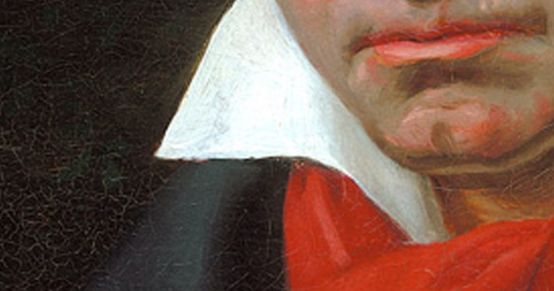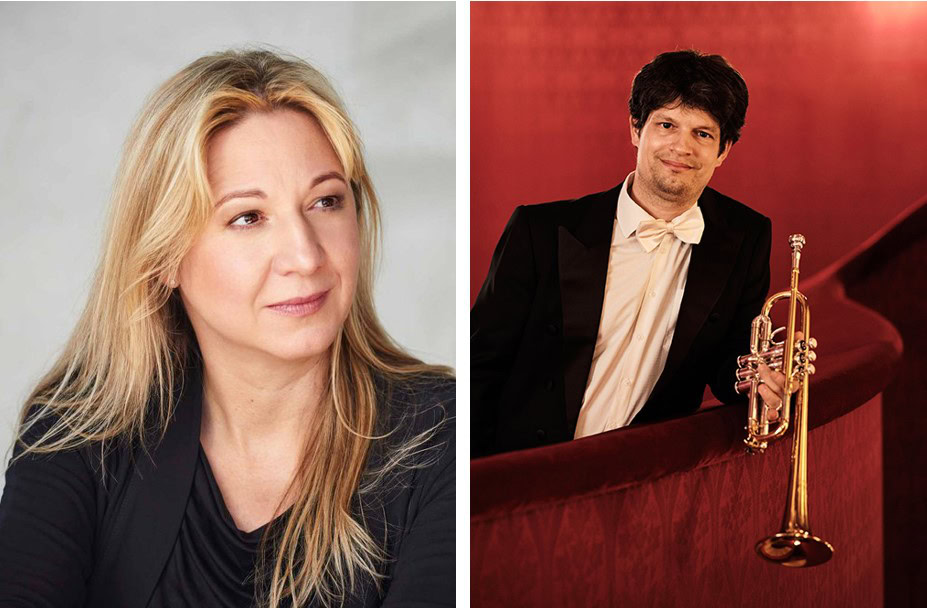Choral Fantasy
Beethoven every Friday: to mark his 250th birthday, we take a look at one of his works every week. Today it's the Fantasia for piano, choir and orchestra in C minor.

Finale. Strangely enough, after only 26 bars of piano improvisation to the Allegro of the Choral Fantasy. Furthermore, the orchestra should only enter at a signal from the pianist (Qui si dà un segno all' orchestra o al direttore di musica). An astonishing 586 bars follow. The strings enter with a march-like line as if from afar and approach in a crescendo, horns and oboes exchange brief call motifs with an echo effect, before the piano introduces a melody that Beethoven borrowed from himself - from the song composed in 1794/95 Love in return (WoO 118). It is the theme of the subsequent variations, in which the individual wind instruments are gradually introduced in an almost chamber-music style: Flute, oboes, the clarinets with bassoon, then the string section leaders as a quartet, finally the tutti, and later soloists and choir.
This peculiar work, which still occasionally divides opinion today, was the last piece on the program of Beethoven's great academy at the Theater an der Wien on 22 December 1808 - the crowning finale of a long evening that had already included the 5th and 6th symphonies, parts of the Mass in C major, the aria Ah perfido, the Piano Concerto No. 4 and an unscripted Piano Fantasy had been performed. Beethoven's idea that all the performers should join forces here is also evident from the program note, which announces the work as "Fantasy on the piano, which gradually develops with the entry of the orchestra, and finally with the entry of choirs as a finale ! ends".
Johann Friedrich Reichardt was invited to spend the evening in Prince Lobkowitz's box and recorded his impressions in the Familiar letters written on a trip to Vienna (1810). He too was surprised by the composition, but the performance had to be interrupted and rescheduled after an imprecise entry. The underlying structure, which reflected the entire evening, was thus lost from view: "Eleventh piece: a long fantasia in which Beethoven showed his complete mastery, and finally, at the end, another fantasia, which was soon joined by the orchestra and finally even the choir. This strange idea failed in its execution due to such complete confusion in the orchestra that Beethoven, in his holy artistic zeal, no longer thought of an audience or locale, but called out to stop and start again from the beginning. You can imagine how I suffered with all his friends."
However, the composition, which had been written down in a hurry, had not only been insufficiently rehearsed. Rather, the entire concert, which lasted four hours, exhausted both the musicians and the listeners, as Reichardt reports: "We held out in the bitter cold from half past six to half past ten, and found that you can easily have too much of a good thing - and even more so, too much of a strong thing." And so, in the end, those programmatic verses with which the Choral Fantasy brightly shining and emphatic in C major: "Accept then, you beautiful souls, / gladly the gifts of beautiful art, / when love and strength unite, / worth the favor of the gods to man."
Listen in!








